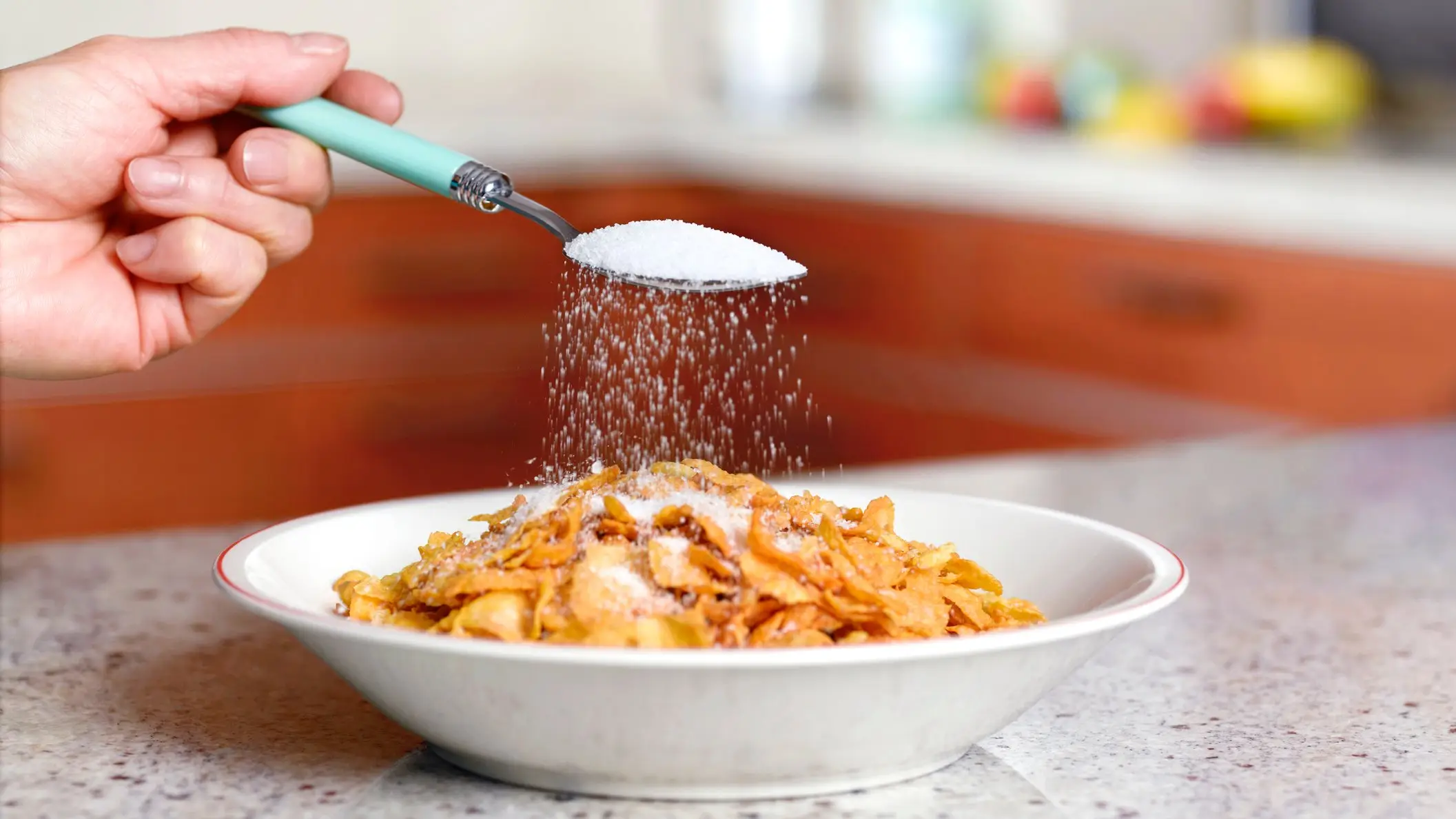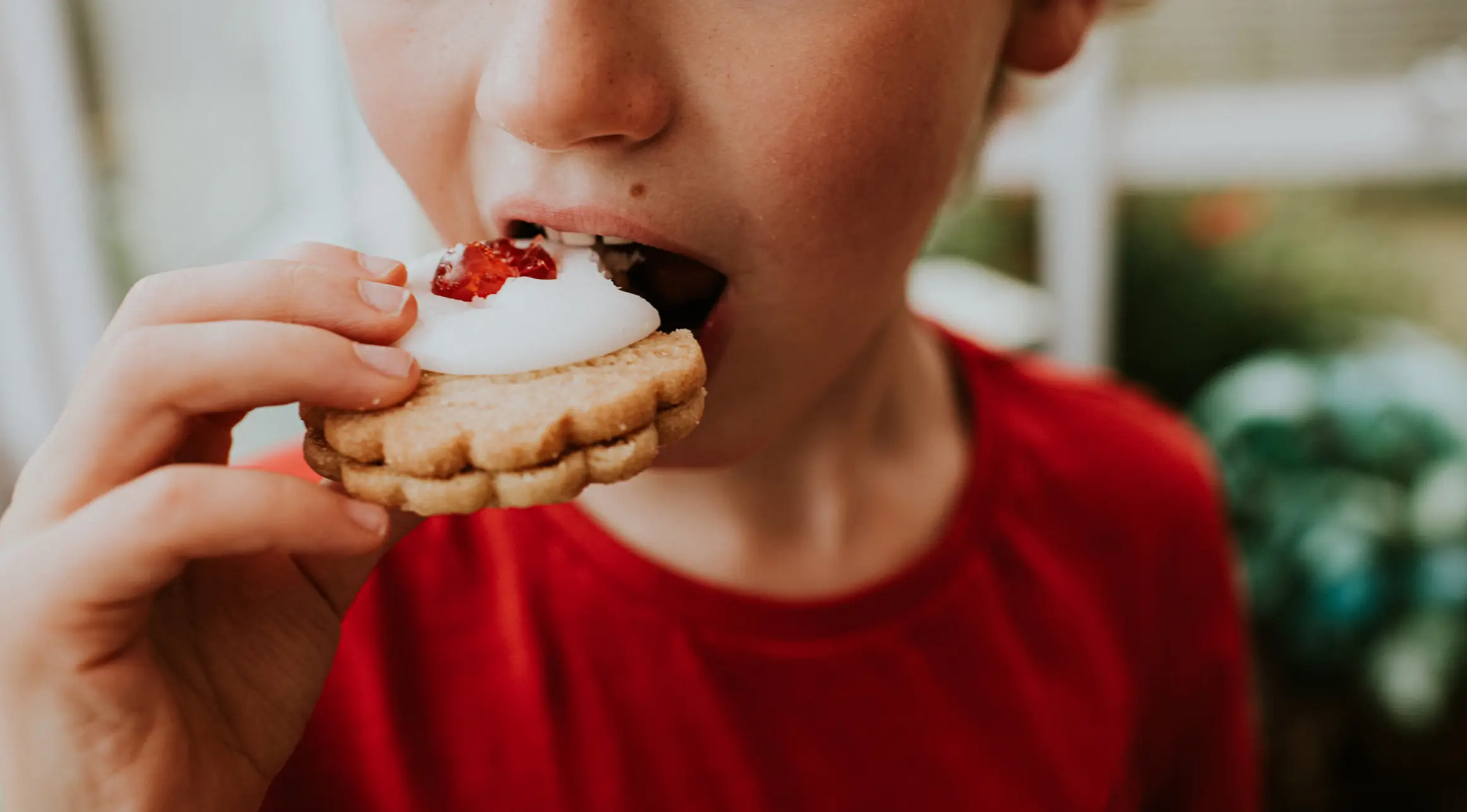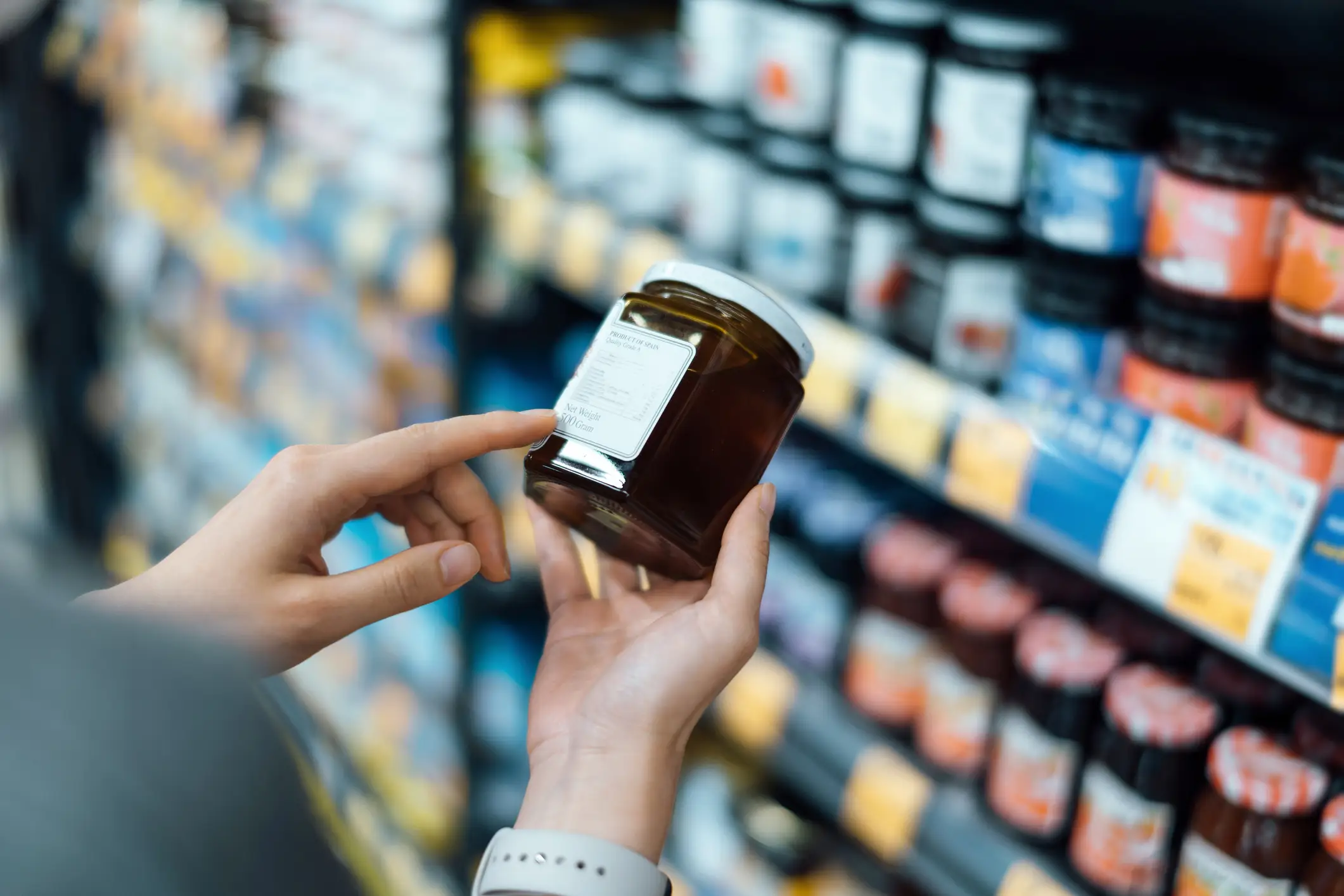
Sugar is one of the Big Bads as far as dietary health is concerned. Along with readily converting into fat within the body if it goes unused, it’s bad news for your teeth and even worse news for your blood.
When you eat sugar in any form, whether that’s granulated cane sugar or fructose from an apple, your blood-glucose level increases. There’s a safe level for this increase, and your body produces insulin via the pancreas which gets released to manage those blood-glucose levels.
Over time, excessive sugar consumption and the resultant insulin releases can lead to insulin resistance.

Advert
Essentially, the body’s insulin receptors get worn out, meaning the hormone can’t bind to them and have the desired effect. If the insulin isn’t working, your blood-glucose levels can’t be regulated, and those high levels can cause damage around the body.
This insulin resistance is otherwise known as type 2 diabetes, and once you’ve got it you can generally expect to be managing it with your and insulin injections for the rest of your life. If it goes untreated, it can cause blood vessel damage, nerve damage, ocular damage that can lead to blindness, and damage it can do to your feet can result in amputation.
While type 2 diabetes is manageable, it’s obviously preferrable if you don’t develop it. Watching your sugar intake, maintaining a healthy body weight and a healthy body fat percentage can all help to mitigate the risk of developing the condition.
If you decide cut down on sugar or kick it to the curb altogether, either for preventative or diabetes management reasons, it’s certainly achievable. However, there are things you need to bear in mind about how the body reacts to dramatic sugar intake reduction or abstinence.
Writing for Prevention, dietician Lauren Manaker detailed what you can expect whilst cutting back on the sugar.
She begins by noting that many of us may be more hooked on sugar than we might realise, making for a difficult transition to a low-sugar diet. “As soon as I decided to part ways with added sugar, I quickly realized that my mission was more complicated than I’d anticipated,” she said.
“Foods I’d always considered healthy, like my go-to Greek yogurt or the delightful splash of sugar-added “natural” creamer in my morning coffee, were suddenly off-limits due to their added sugar content. Even my go-to bread had some added sugar baked into the mix!”
In effect, you’re probably consuming more sugar than you think, and reckoning with this can be difficult.
Sugar is very much an addictive substance. Our bodies are built for scarcity and energy management, so if you can get hold of something that gives you more or less immediately-available energy, you’re going to crave it.
“After a couple of tough days, though, something surprising happened—I stopped missing sweets,” Manaker explained, signalling light at the end of the tunnel.
During her abstinence, which she committed to for a full week, she said she ‘felt a touch irritable, occasionally sluggish, and maybe even a little foggy-headed’.
“I also felt an overall feeling of being out of sorts, likely because my routine was tweaked,” she said, noting that this adjustment period is down to the body figuring out how to operate without all that sugar keeping the fires lit.
She added: “I think I was eating less because I was avoiding foods that I may normally grab-and-go in the morning, like a pre-made overnight oats cup or a high-protein granola bar. So, was it the lack of sugar or the consumption of fewer calories that caused this feeling?”
It didn’t take long for the new reality to set in. “By around day three or four, my energy levels began to stabilize,” said Manaker.

“I slept better at night, felt more alert during the day, and even noticed my sugar cravings softened. I didn’t notice any physical changes in my body, though—perhaps because I am not a huge sugar consumer and my ‘experiment’ only lasted a week, which may not have been enough time for the sugar-free diet to have a profound impact on my skin, bloat, or other physical factors.”
She concluded: “It was fascinating to realize how quickly my body responded to the absence of added sugar. The impact wasn’t profound, but it was enough to show me the benefits of limiting sugar intake.”
